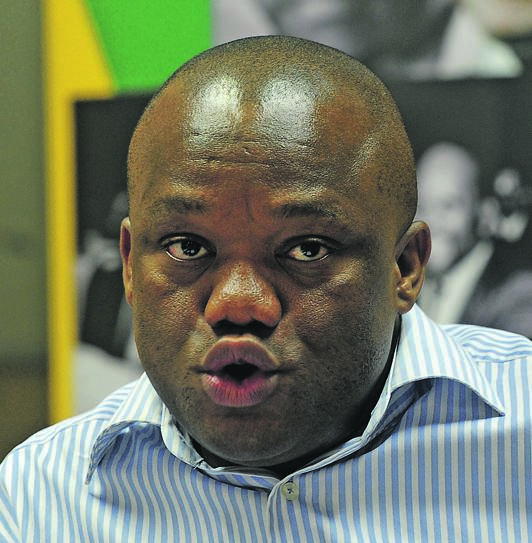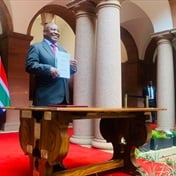
eThekwini residents describe premier’s decree on positive patients as ‘authoritarian, dictator-like’
You would be hard pressed to find many citizens in KwaZulu-Natal, and particularly in the eThekwini Metro, who agree with the recent announcement by Premier Sihle Zikalala that anyone who tests positive for the Covid-19 coronavirus will be taken to government-approved facilities to recuperate.
The Zulu kingdom was, until it was overtaken by the Western Cape on Thursday, the province with the most Covid-19-related deaths, a legacy Zikalala clearly didn’t want.
City Press spoke to a number of people – some of whom were willing to be named – who used words such as ‘authoritarian’, ‘megalomaniac’ and ‘dictator-like’ to describe Zikalala’s Covid-19 isolation decree.
But in a telephone interview with City Press on Saturday, Zikalala appeared to reverse the decree, saying that, while the state of disaster regulations allowed for forced quarantine, checks would be done to determine if individuals could self-quarantine before whisking them off to a state facility.
Earlier, the premier had told City Press in response to emailed questions: “People who are Covid-19-positive and are being taken into isolation will be treated in reasonable, safe, fit-for-purpose conditions. That statement [of government taking people into quarantine facilities] goes with the understanding that the main focus is to also check whether those people are able to do self-quarantine.
“If they are unable to and if they have the potential to undermine the regulations of self-quarantine, obviously they will have to be taken to a government facility.
“We know there are organisations that are saying this will discourage people from testing or it will mean we are undermining the effort [to curb infections]. But this is in line with the regulations, and forcing people to quarantine is what we will do,” he said.
Zikalala said government was “working on” procuring beds in private facilities – such as bed and breakfast establishments – if needed.
Temporary facilities would also be used.
This, of course, will cost money. Zikalala said a revised provincial budget would be tabled soon.
He said he was willing to commit to fully opening the province’s books so that the public was aware of where money used for Covid-19 management and response had been allocated.
“We will definitely be open and accountable. An example is how we are dealing with allegations involving the department of social development and the issue of blankets. We are mandating a full investigation and all processes will be open,” said Zikalala.
Earlier this month, it was reported that the department, using its emergency procurement powers, pushed through a R22 million tender to buy, among other things, blankets for R600 each – they normally sell for about R150.
While the premier appeared to reverse his stance on the quarantine issue with City Press, his statement last Sunday that anyone who was found to be positive would be “taken” to facilities was still fresh in the minds of citizens.
They still believed that, no matter where or how they lived, they would be taken – forcefully if necessary – and locked up with other Covid-19 patients against their will if they tested positive and only experienced mild or no symptoms of the virus.
Mandla Shabangu, KwaZulu-Natal spokesperson for nursing union Denosa, told City Press that Zikalala had been particularly “authoritarian” and “irrational” by deciding on the wholesale admittance of Covid-19 patients without involving the unions.
Shabangu said that when Denosa and other unions tried to raise the issue of Zikalala’s decree, they were told they were being “counter-revolutionary” and were against efforts to curb the spread of the virus.
"There are no provisions in the Covid-19 guidelines issued by the National Institute for Communicable Diseases that say this must be done. It says people who can self-isolate must. But in KwaZulu-Natal, Zikalala unilaterally decided to say everyone testing positive must be admitted.”
Shabangu said the decision had put significant pressure on the nurses who had been operating in facilities with a lot of vacancies or as much as a “70% vacancy rate” in the province.
“Now they want to admit everyone [who has Covid-19]? Who is going to look after them?”
Shabangu said the department of health was circumnavigating the shortage of nurses by asking retired and unemployed nurses to volunteer.
“There are 12 000 unemployed nurses in KwaZulu-Natal and government wants them to volunteer. They don’t want to pay [them],” he said.
Asked about the number of vacant nursing posts in the province, Zikalala told City Press the issue was being addressed.
The premier also said the reasons behind the “challenges” in KwaZulu-Natal’s public healthcare sector were “a direct consequence of South Africa’s unsustainable two-tier healthcare system”.
That system, he said, was characterised by a severely underfunded and overburdened public healthcare system that catered for the vast majority of the population and a government-subsidised private healthcare sector “that caters for the affluent few”.
“These gross imbalances will be levelled by the imminent roll-out of the National Health Insurance system,” he said.
Social justice activist Vanessa Burger, known for her work among KwaZulu-Natal’s huge hostel population – particularly the Glebelands – told City Press that Zikalala’s initial decision revealed an administration that punted its love for the poor, but was out of touch with their reality.
“Conditions for seriously ill patients are already appalling in government hospitals. I shudder to think what the compulsory isolation camps are going to be like ... If the virus doesn’t kill us, starvation or our government will.
“It’s not like poor communities don’t get the need to [socially] distance, wash hands and not move around. Poor people particularly are terrified of catching the virus because they are only too aware of the state of our public health system. Government hospitals are where you go to die. They are also only too well aware that local government’s failure to provide decent housing and basic services post-1994 has, since the Covid-19 outbreak, now become more life-threatening than ever before.”
The effects of the national lockdown, and the “enhanced measures” in KwaZulu-Natal, have understandably also rearranged the lives of the working and middle class citizens City Press spoke to.
John Mulaudzi, a construction business owner who employs 76 people and runs government projects around the province, told City Press that his company had been closed since day one of the lockdown.
Mulaudzi said he was in “100% support” of the first three weeks of the lockdown to avoid the situations that were playing out in countries such as Italy and the US.
The problem arose when the lockdown was extended by another two weeks and the provincial government’s insistence on clamping down on all Covid-19 cases.
“If you have your own house and you have a mild infection, you should be able to self-isolate in your own home. You are likely to come back from our public hospitals sicker than when you were admitted,” Mulaudzi said.
As for navigating his business during the lockdown and the pandemic, Mulaudzi said: “As a businessperson, this is my problem, not the problem of my employees. They look at you and ask: ‘What can you do for us?’ You have to provide for them.
“As we move into the last week of the month, my employees have been phoning me, expecting me to do whatever, even if it’s [paying half of their wages]. Where do you get that money?”
His cash reserves, said Mulaudzi, were used to buy materials for a project before the virus had become a serious concern.
“And then, all of a sudden, we were told that the lockdown would be coming within a few days.”
Mulaudzi said he had been to the bank to seek financial assistance to cover salaries and was awaiting a response.
Although he was aware of the financial relief that President Cyril Ramaphosa announced on Tuesday, he was waiting for additional information on how and where to apply.
He had tried to access funding from Johann Rupert’s R1 billion Sukuma Relief Programme, but, as reported, the fund reached its capacity within three days of opening.
“I just hope that on May 4 we can go back to work.”
Local preacher Olive Smith (69), who leads a small congregation of elderly people with limited means at the Sparks Estate Methodist Church in eThekwini’s Sydenham suburb, told City Press she was fearful of the situation the country and province were in, but added that the fear was “not at all overwhelming”.
“It’s an underlying fear that is there, the same as if I had to walk into a crowded area where I could be mugged. What sustains me is my faith; it galvanises me,” Smith said.
Her WhatsApp sermons and devotions have been shared widely, she said, as were sermons shared by other pastors and preachers.
“It is good that people can receive some hope from the messages that God gives us.”
The eThekwini Metro on Friday announced “eight pillars” as part of its Covid-19 economic recovery plan.
They include monitoring the City of Durban’s income; support for tourism, township and informal sector economies; and accelerating construction, infrastructure and investment projects.
“Since the Covid-19 crisis began, six sectors of the economy have been severely affected.
They include construction, manufacturing, tourism, retail, trade, finance and transport,” said mayor Mxolisi Kaunda this week.
Kaunda said the city’s plan recognised the need to ensure that the metro remained financially viable and was still an investment destination.
The mayor said that, last year, early tourism projections for the metro showed a growth in both local and international arrivals.
In the same year, 3.8 million tourists overnighted in Durban.
Shortly after Covid-19 was declared a pandemic, but before the nationwide lockdown, initial projections reflected a revenue of R300 million in direct spend in the local economy.
But with the postponement of major events such as the Vodacom Durban July, Africa’s Travel Indaba, rugby and football events, as well as the Comrades Marathon – all accounting for about 280 000 visitors – a R725 million loss to the local economy was now anticipated.
The Inkosi Albert Luthuli International Convention Centre had postponed more than 85 events that were scheduled to take place between last month and June, he said.
 | ||||||||||||||||||||||||||
Get in touchCity Press | ||||||||||||||||||||||||||
| ||||||||||||||||||||||||||
| Rise above the clutter | Choose your news | City Press in your inbox | ||||||||||||||||||||||||||
| City Press is an agenda-setting South African news brand that publishes across platforms. Its flagship print edition is distributed on a Sunday. |




 Publications
Publications
 Partners
Partners








